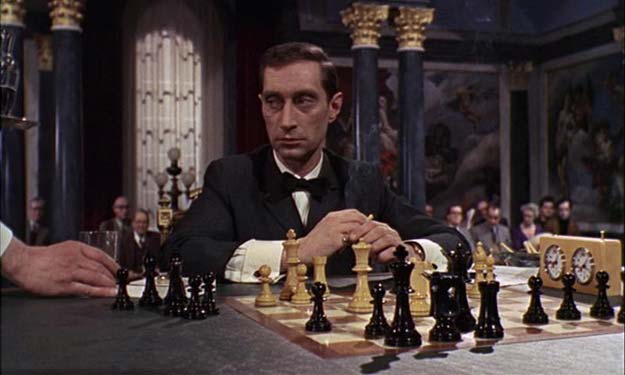In the 1940s, the Dutch psychologist Adrian de Groot performed a landmark study of chess experts. Although de Groot was an avid chess amateur – he belonged to several clubs - he grew increasingly frustrated by his inability to compete with more talented players. De Groot wanted to understand his defeats, to identify the mental skills that he was missing. His initial hypothesis was that the chess expert were blessed with a photographic memory, allowing them to remember obscure moves and exploit the minor mistakes of their opponents.
De Groot’s first experiment seemed to confirm this theory: He placed twenty different pieces on a chess board, imitating the layout of a possible game. Then, de Groot asked a variety of chess players, from inexperienced amateurs to chess grandmasters, to quickly glance at the board and try to memorize the location of each piece. As the scientists expected, the amateurs drew mostly blanks. The grandmasters, however, easily reproduced the exact layout of the game. The equation seemed simple: memory equals talent.
But then de Groot performed a second experiment that changed everything. Instead of setting the pieces in patterns taken from an actual chess game, he randomly scattered the pawns and bishops and knights on the board. If the best chess players had enhanced memories, then the location shouldn’t matter: a pawn was still a pawn. To de Groot’s surprise, however, the grandmaster edge now disappeared. They could no longer remember where the pieces had been placed.
For de Groot, this failure was a revelation, since it suggested that talent wasn’t about memory – it was about perception. The grandmasters didn’t remember the board better than amateurs. Rather, they saw the board better, instantly translating the thirty-two chess pieces into a set of meaningful patterns. They didn’t focus on the white bishop or the black pawn, but instead grouped the board into larger strategies and structures, such as the French Defense or the Reti Opening.
This mental process is known as “chunking” and it’s a crucial element of human cognition. As de Groot demonstrated, chess grandmasters automatically chunk the board into a set of known patterns, which allow them to instantly sort through the messy details of the game. And chunking isn’t just for chess experts: While reading this sentence, your brain is effortlessly chunking the letters, grouping the symbols into lumps of meaning. As a result, you don’t have to sound out each syllable, or analyze the phonetics; your literate brain is able to skip that stage of perception. This is what expertise is: the ability to rely on learned patterns to compensate for the inherent limitations of information processing in the brain. As George Miller famously observed, we can only consciously make sense of about seven bits of information (plus or minus two) at any given moment. Chunking allows us to escape this cognitive trap.
{ Wired | Continue reading }








